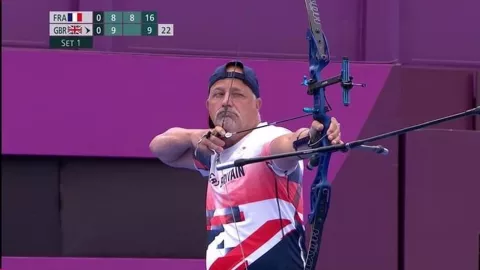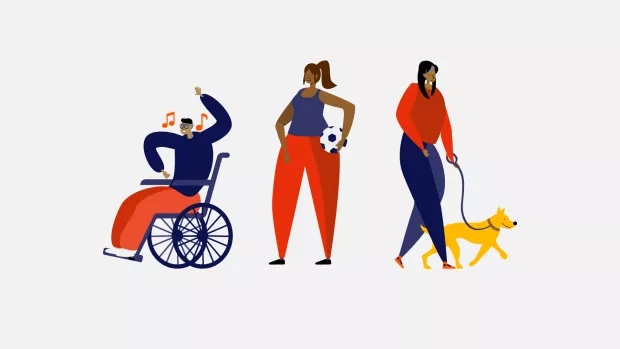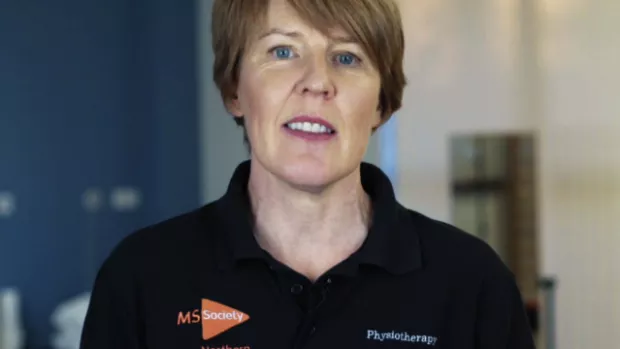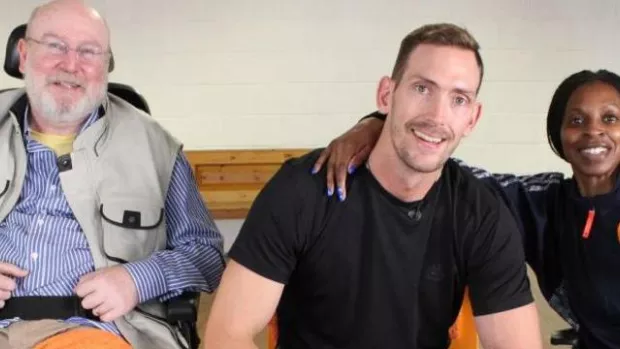
From after-school archery club to the Tokyo Paralympics
Archer Dave Phillips has rediscovered a passion for archery from his childhood. He tells us how it’s helped him and his family manage life with MS.
Sport and exercise has always been an important part of my life. As a kid I was never in the house – I was either out on my bike, running or swimming. As a teenager I represented my county in running, rugby and javelin. It was my brother Stephen who first got into archery. But I tried it out at an afterschool club and I was hooked.
As an adult, sport took a back seat. I was working hard to look after my family. I worked in the steel works as a team leader and relief section manager.
I didn’t tell many people about MS at first
At the age of 30 I was diagnosed with MS. In the early days, apart from relapses affecting my right-hand side and some walking issues it didn’t affect me too much.
At work only a few people and HR knew I had MS and that I struggled with certain activities. I was worried people would think I was lazy, so I volunteered for everything I could. I even started a business, employing four people. I was desperate not to let the condition ruin our lives.
But eventually it became too much. I began stumbling and falling at work, and I couldn’t keep a grip on a hammer – it would fly out of my hand. I understood that it wasn’t safe for me to continue, and so I had to retire.
Retirement was hard
I was home all the time, I had no contact with my old work mates and I wasn’t as active. Then my wife Angie suggested I take up archery again. It was just what I needed. I found that the muscle-memory was still there – it just came back to me.
I had to use a stool to help my balance but I found I could still hold and pull back a bow.
Success came quickly. One year after beginning my career in para archery I was selected for the GB squad. I won team gold and mixed team bronze medals at the European Para Championship. Two years later I made the quarter finals at the 2016 Rio Paralympics. It was the experience of a lifetime.
Competing at the Tokyo Paralympics
Training for the Tokyo Paralympics during the COVID-19 pandemic was very disrupted. My MS and immune suppressant medication meant I was on the clinically extremely vulnerable list. I couldn’t train with my team mates for months. When I was eventually allowed back in the team environment, catching the virus was a very real risk. Lots of athletes using the same facilities as me were testing positive. My training was rushed, and I wasn’t at my peak performance.
My qualifying scores ranked me in tenth place, which unfortunately put me up against the world number one from France. But I put in the performance of my career and beat him convincingly.
I surprised myself. With foot drop, weakness and a lack of dexterity in my hands I shouldn’t have been able to do it – but I did!
I’d made it to the quarter finals. But a sudden change in weather (torrential rain) caused me to lose focus and sealed my fate. I was very pleased to have come so close, but I guess that’s sport for you. Hopefully I can go all the way in Paris in 2024!
Find something you like and give it a go
Without my sport I’m positive my quality of life would have been very different. Like lots of people diagnosed with MS I was in denial for many years, uncertain of what the future would hold. I took strength from my family, who were also affected by my diagnosis. I feel fortunate to have such incredible support from Angie and those around me.
Success to me is having a balance between sport and family life. Both are equally important.
I know I’ve done some amazing things which makes me and my family proud.
I want everyone living with MS to enjoy some form of sport or exercise. Don’t worry about what you can’t do, find something you like and give it a go. Do something every day, even if it’s just for a minute or two. The main thing is to keep active as much as we can.




